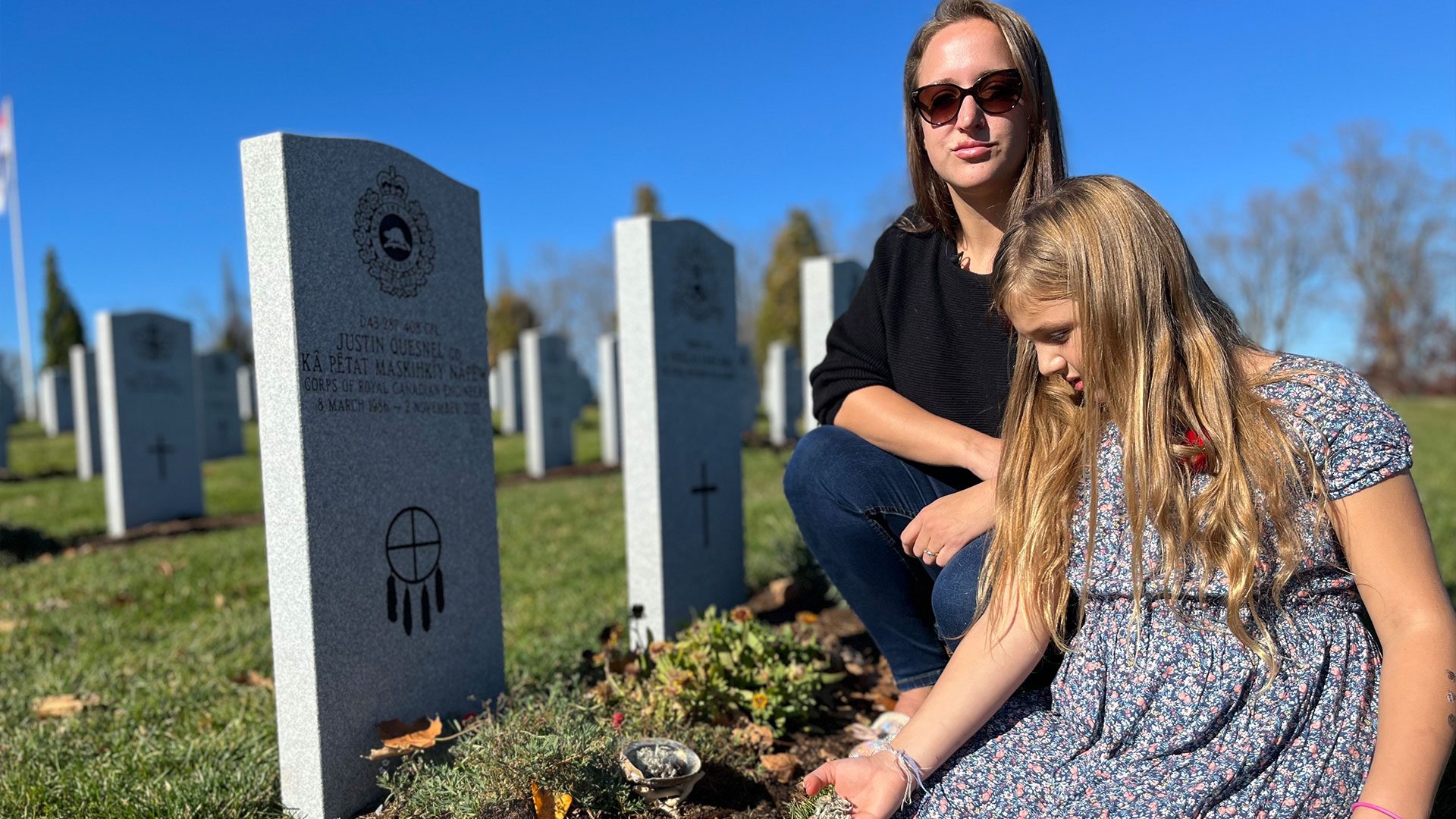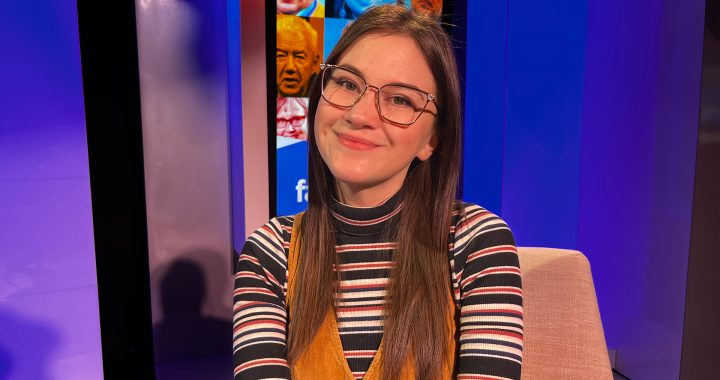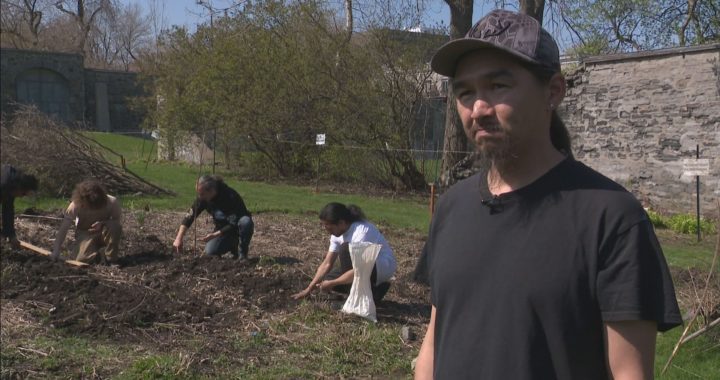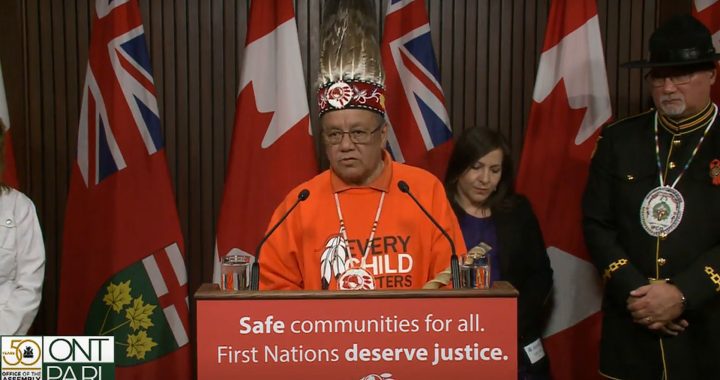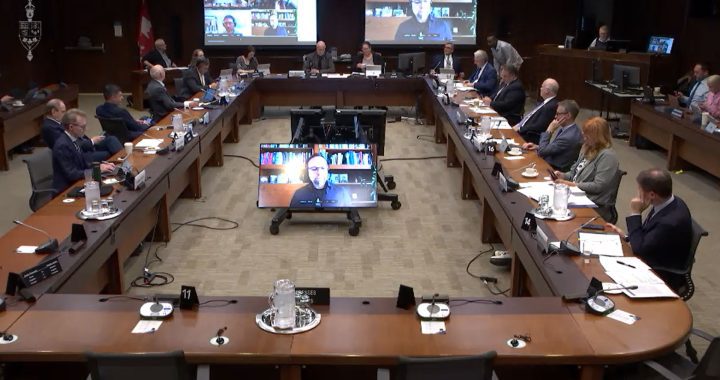At Beechwood National Military Cemetery in Ottawa, nestled amidst the solemn rows of grey, granite headstones bearing Christian crosses and Stars of David, is a marker featuring a simple etching of a medicine wheel adorned with feathers.
It’s a spiritual symbol befitting the man buried there – Cpl. Justin Quesnel, a member of the Cree nation from Indian Lake Saskatchewan – and the first veteran to be buried with an Indigenized headstone at Canada’s national military cemetery.
The stone also features Quesnel’s Cree name – ‘Kâ Pêtat Maskihkîy Nâpêw’ – translating to ‘he who brings medicine.’
“I just remember daddy made me laugh a lot and had pillow fights – and, like, tickle fights,” Justin’s daughter Leia, explained.
“We’ve been a little lost – I’m not going to lie,” Quesnel’s widow, Caitlin, added. “But we’re finding our way through.”
Quesnel, a member of the 2 Combat Engineer Regiment out of Petawawa, Ont., passed away unexpectedly on Nov. 2, 2021, at the age of 35, after serving 14 years in the military and having completed tours of duty in Latvia, Romania, Ukraine and Kuwait.
To mark the one-year anniversary of his passing, Caitlin, daughter Leia, and family friend, Cpl. Andrew Moylan, went to Justin’s grave site in Ottawa to lay medicine: a braid of sweetgrass, a box of sage hand-picked by his mother, and some berries for sustenance in the spirit world.
“Justin was in the process of really kind of reclaiming his culture – he was trying to learn Cree. He’d smudged,” Caitlin explained.
“He didn’t know where to start – there was a lot of intergenerational trauma, I mean, we all know the stories.”
But along with the traditional medicines, they also brought along Justin’s favorite guilty pleasure food: Doritos.
“Every six months or so, Justin would say ‘alright Andrew, I’m ready to crack down, what do I need to do? Get me in shape,’” Moylan told APTN News, laughing.
“We’d be in Latvia and I’d find him eating bags of Doritos, and they’d be stuffed under his bed.”
When Justin died, Caitlin was approached with an offer to customize his headstone that would eventually go up in the military cemetery at Beechwood, a massive cemetery in Ottawa’s east end where soldiers, dignitaries and prime ministers are buried.
“We were speaking to one of the directors and she asked if we wanted any religious symbols on the headstone – and I’d asked if they had any Indigenous symbols. And at the time, she had said no. I asked why, and she said they were going to look into it,” she explained.
“What I didn’t know at the time is they had already been in the process of getting new symbols approved to kind of represent the breadth of Canadians that served.”
Nicolas McCarthy, director of marketing, communications, and community outreach at Beechwood, said the Quesnel family sped up the process of making Indigenous symbolism available on grave markers.
“That was the impetus for it – the death of Corporal Quesnel,” McCarthy told APTN.
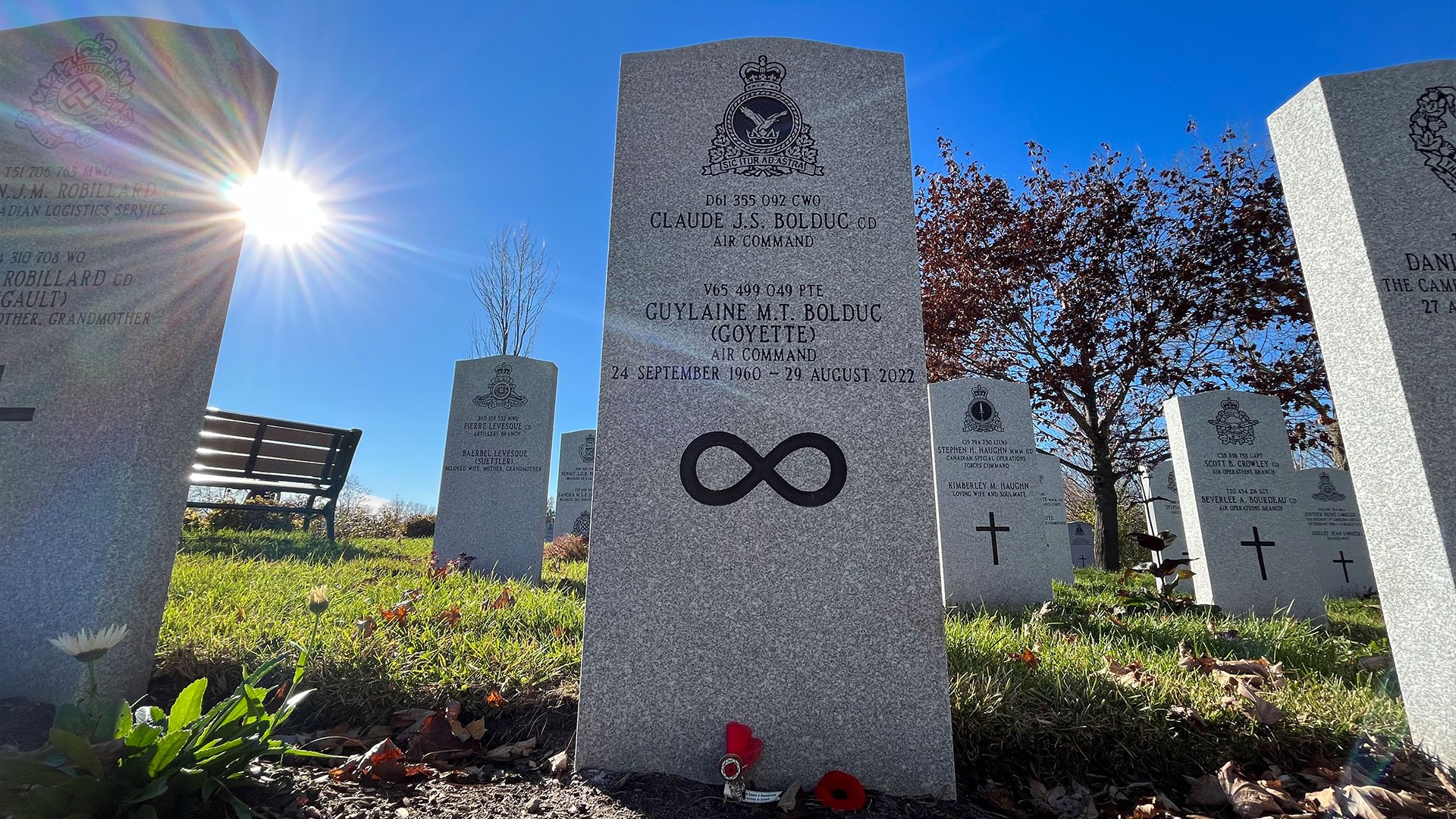
With the inclusion of the medicine wheel, there are now 11 “spiritual” or “religious” symbols available for military families’ use on headstones at Beechwood – including the Métis infinity sign.
A Métis military headstone commemorating a member of the Bolduc family was unveiled alongside Justin Quesnel’s stone in a joint ceremony in June 2022.
According to McCarthy, a third Indigenous spiritual symbol – this one in honour of Inuit veterans – is in the works, but will only be publicly unveiled when the urban Inuit community of Ottawa gives their explicit approval.
“I think a lot of people don’t realize that the road to reconciliation comes with that recognition and that representation,” McCarthy said.
“Indigenous folks have been part of the military since the 1500s,” he added. “And now, we’re finally recognizing them properly and allowing their cultures to be seen.”
As for her late husband being the first to have the honour of an Indigenized military headstone, Caitlin feels Justin would have “loved it.”
“He would’ve bragged,” she said. “He would’ve been so proud.”
“I think he probably would have been shocked, or something like that,” Leia added, for her part.
“People come into your life as either a lesson or a blessing – and Justin was both,” Moylan explained. “He was a blessing to have in our life, and there’s been so much to learn from his life since he’s passed.”
Editor’s Note: This story was updated on Nov. 9.



